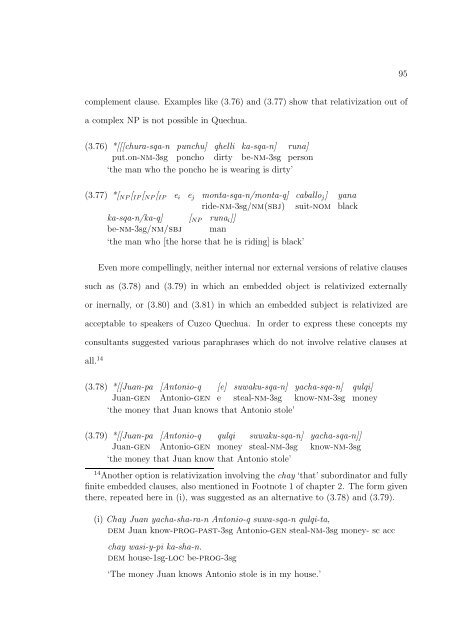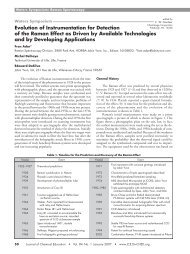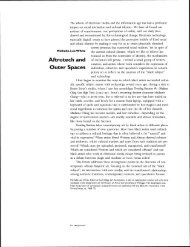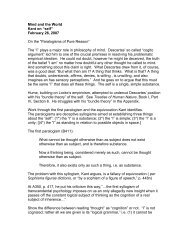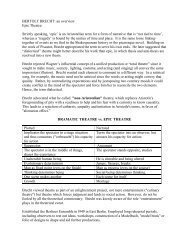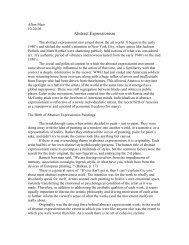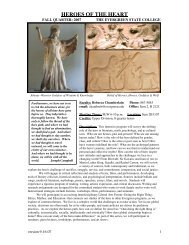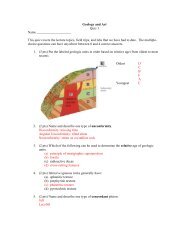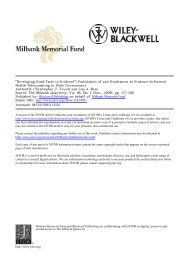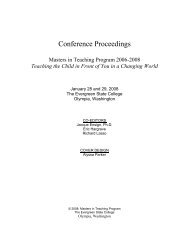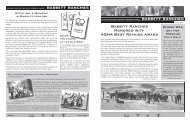the syntax and semantics of relativization and quantification
the syntax and semantics of relativization and quantification
the syntax and semantics of relativization and quantification
Create successful ePaper yourself
Turn your PDF publications into a flip-book with our unique Google optimized e-Paper software.
95<br />
complement clause. Examples like (3.76) <strong>and</strong> (3.77) show that <strong>relativization</strong> out <strong>of</strong><br />
a complex NP is not possible in Quechua.<br />
(3.76) *[[[chura-sqa-n<br />
put.on-nm-3sg<br />
punchu]<br />
poncho<br />
qhelli<br />
dirty<br />
ka-sqa-n]<br />
be-nm-3sg<br />
runa]<br />
person<br />
‘<strong>the</strong> man who <strong>the</strong> poncho he is wearing is dirty’<br />
(3.77) *[ NP [ IP [ NP [ IP e i e j monta-sqa-n/monta-q]<br />
ride-nm-3sg/nm(sbj)<br />
ka-sqa-n/ka-q] [ NP runa i ]]<br />
be-nm-3sg/nm/sbj man<br />
‘<strong>the</strong> man who [<strong>the</strong> horse that he is riding] is black’<br />
caballo j ]<br />
suit-nom<br />
yana<br />
black<br />
Even more compellingly, nei<strong>the</strong>r internal nor external versions <strong>of</strong> relative clauses<br />
such as (3.78) <strong>and</strong> (3.79) in which an embedded object is relativized externally<br />
or inernally, or (3.80) <strong>and</strong> (3.81) in which an embedded subject is relativized are<br />
acceptable to speakers <strong>of</strong> Cuzco Quechua. In order to express <strong>the</strong>se concepts my<br />
consultants suggested various paraphrases which do not involve relative clauses at<br />
all. 14<br />
(3.78) *[[Juan-pa [Antonio-q [e] suwaku-sqa-n] yacha-sqa-n]<br />
Juan-gen Antonio-gen e steal-nm-3sg know-nm-3sg<br />
‘<strong>the</strong> money that Juan knows that Antonio stole’<br />
qulqi]<br />
money<br />
(3.79) *[[Juan-pa [Antonio-q qulqi suwaku-sqa-n]<br />
Juan-gen Antonio-gen money steal-nm-3sg<br />
‘<strong>the</strong> money that Juan know that Antonio stole’<br />
yacha-sqa-n]]<br />
know-nm-3sg<br />
14 Ano<strong>the</strong>r option is <strong>relativization</strong> involving <strong>the</strong> chay ‘that’ subordinator <strong>and</strong> fully<br />
finite embedded clauses, also mentioned in Footnote 1 <strong>of</strong> chapter 2. The form given<br />
<strong>the</strong>re, repeated here in (i), was suggested as an alternative to (3.78) <strong>and</strong> (3.79).<br />
(i) Chay Juan yacha-sha-ra-n Antonio-q suwa-sqa-n qulqi-ta,<br />
dem Juan know-prog-past-3sg Antonio-gen steal-nm-3sg money- sc acc<br />
chay wasi-y-pi ka-sha-n.<br />
dem house-1sg-loc be-prog-3sg<br />
‘The money Juan knows Antonio stole is in my house.’


